Through the trees beside the highway I could see a dozen or so tents, trucks, trailers and other miscellaneous temporary-style shelters. I stopped at the turn-off and stood for a while, staring, wondering what they were doing. A man in the distance raised an arm and waved. I waved back, and pedalled towards him. I went past a red pickup truck with a guy lying underneath it undertaking some kind of repair. An old ATV drove by. The one who had waved was standing with a couple others, smoking some hand-rolled cigarettes and drinking cans of beer. “Are you a picker?” he said when I stopped in front of him.
“No, I’m a bicyclist,” I said. “What about you guys, are you hunters?”
The guys around him chuckled. “Of a sort,” he replied. “You’re standing in a camp of professional mushroom pickers.”
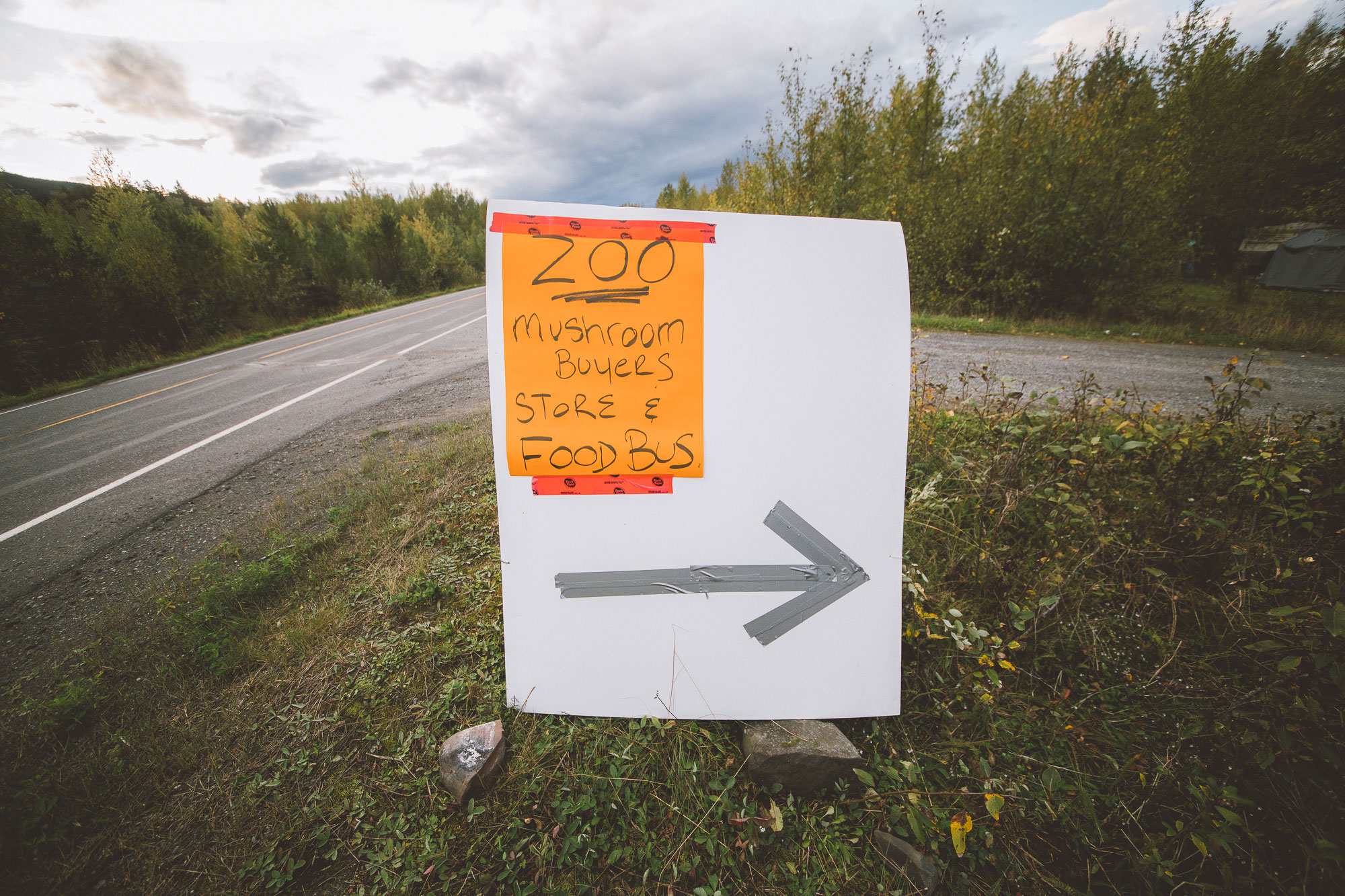
He said there were maybe about thirty of them at the camp right now, and while the picking season in that area was just sort of starting, he worked in various forms of wild harvesting ten months out of the year. They picked chanterelles, pines and morels; and probably others that I forget. They worked in the rain, in the sun, in the forest. Their individually-discovered wild mushroom spots, called ‘patches,’ were closely guarded secrets. Sometimes veteran harvesters passed on their best patches to the next generation of mushroom pickers. Sometimes the knowledge of the patches died with them.
I probably should have gotten out the audio recorder, but I didn’t want to mess up the vibe of the conversation. It was casual. It was fascinating.
Mushrooms grow all over the province, along with berries, sap and other wild edibles that are worth a lot, as it turns out, on the market. They’ve been harvested for millennia, “since the ice age, I guess, but probably before that too.” You just have to know where to look. Chanterelles like the damp. For pines you watch for the button. Morels come out after a forest fire. In the voices of the pickers I heard a level of experience like I had with the ranchers in Dawson Creek. I heard a fondness for the forest and a pride in their ability to gather wild food wherever they were. More than a few of the stories concluded in how much that one haul had been worth, but it was just as well. This was their livelihood. It was worth money, and a good story to boot.
They had a lot of stories. The camp, for example, was called ‘the Zoo’ by the mushroom pickers. “It can get a little rowdy,” the man who had waved at me said, and described competition, exhaustion, retaliation. I imagined his long hair like a lion. He was certainly big enough to handle rowdiness, I thought. “There was a guy in Terrace area, using the spots that are for the locals. You don’t need those spots if you have wheels. Don’t have any right to them. Well, people started talking so I took him one day, I told him, ‘I know what’s being said, and I know the guys who are saying it. You’re best off leaving town,’ I told him.”
“And he did?” I asked.
“He did.”
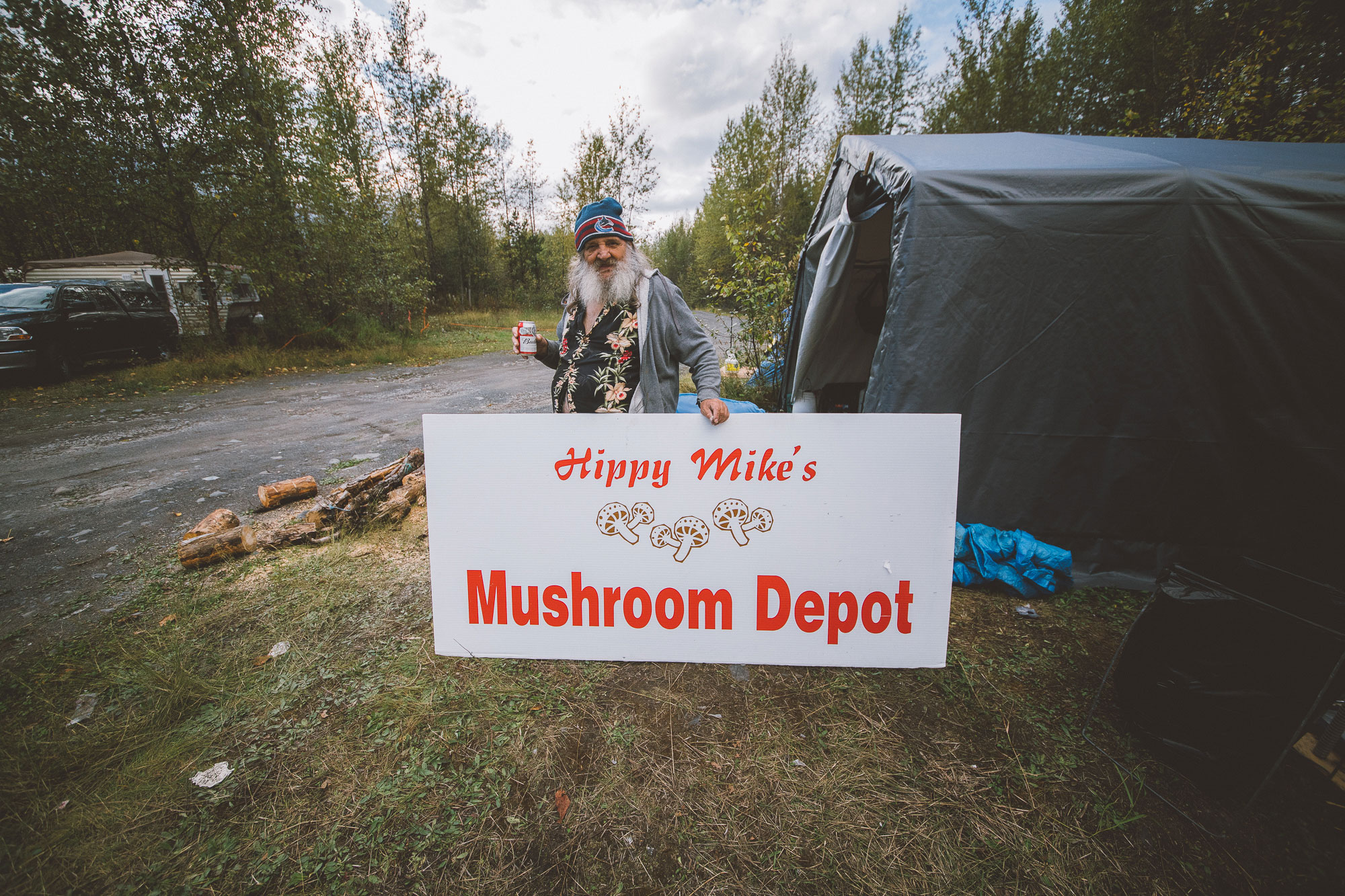
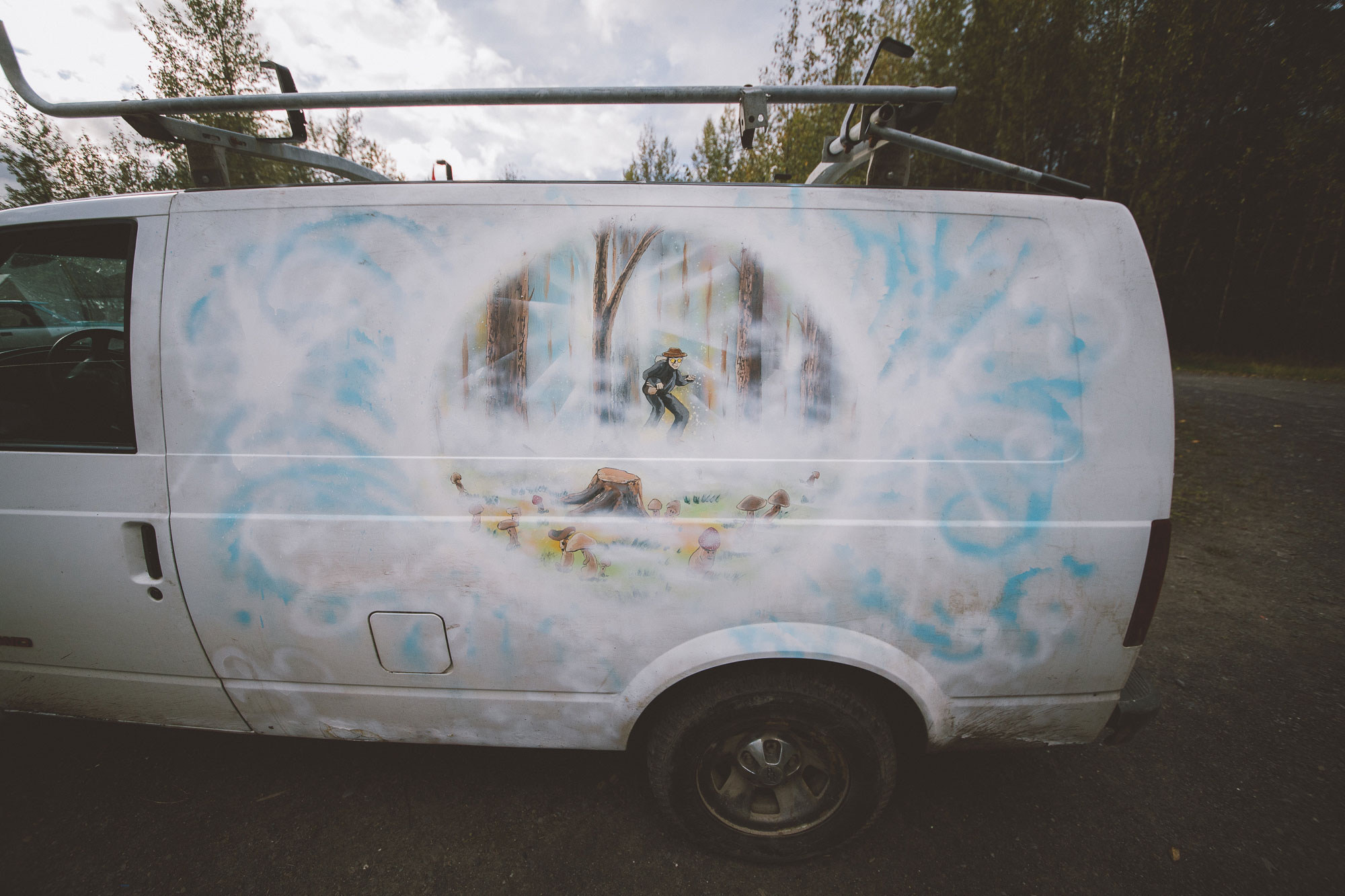
My favourite part of the conversation was when I dared to ask about climate change. “This might be a dumb question,” I started, and the guy who had waved interrupted me.
“Don’t ask dumb questions!”
“Well I don’t know if it‘s dumb until I ask it,” I laughed, and explained what I knew about climate change shortening the maple syrup season in Ontario by about a week already. “Do you experience anything like that?”
“Like you wouldn‘t believe,” he said, and swore. “We used to have seasons like this,” he moved his hand in an arc, “but now it’s more like this.” He swung his hand up and down erratically. “You can’t predict the harvests like you used to.” He talked about the weather changing from week to week, about heavier rains becoming more common, and the forest fires in southern British Columbia. “Just look at the south coast of the United States right now. It’s climate change,“ he said. “You can’t deny what the fuck is going on.”
“Unless you’re Donald Trump,” he added after a moment. “Then you can do whatever you want, apparently. Fuck.”
Another moment passed. “You‘re not American, are you?” he asked.
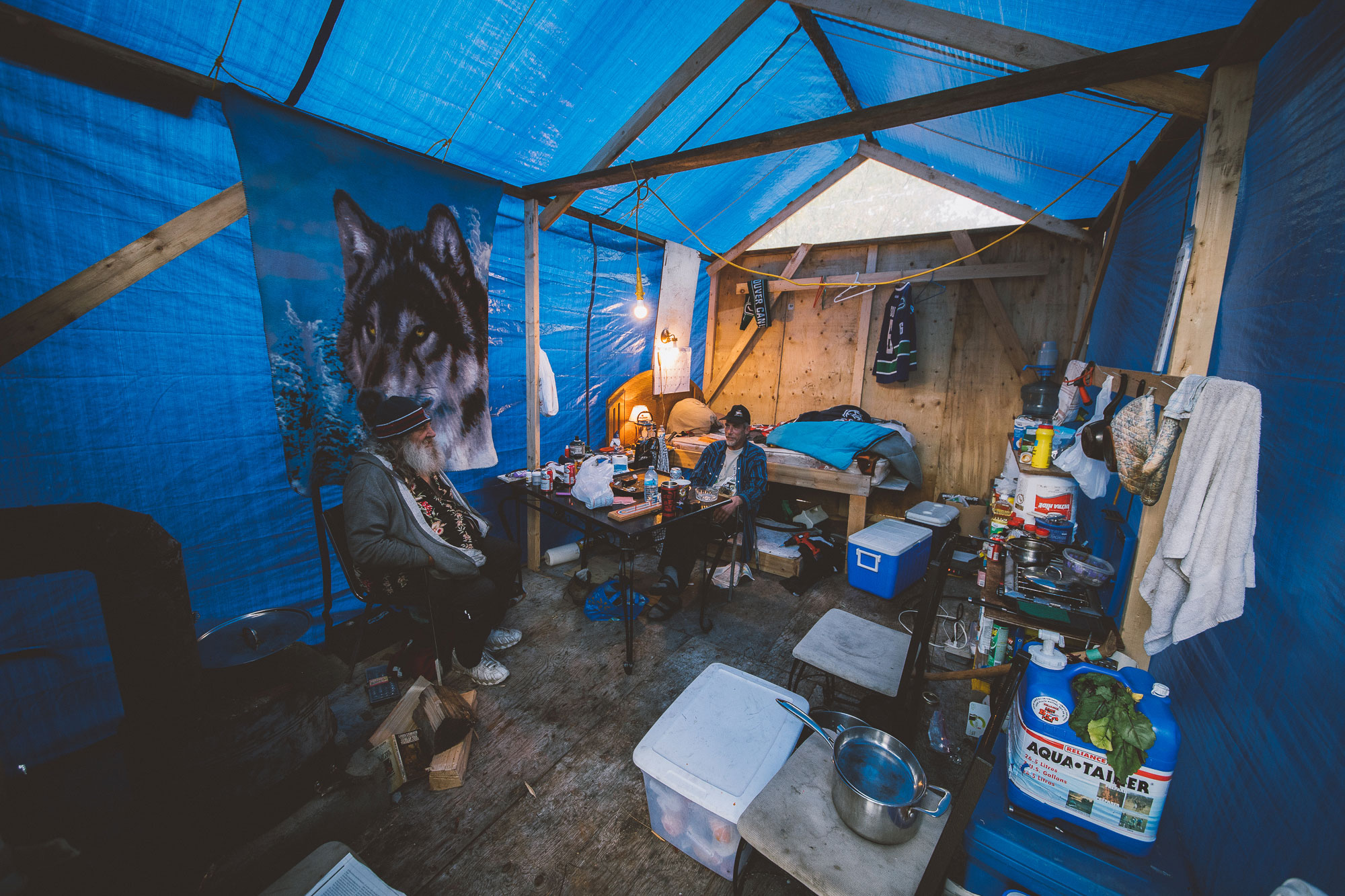
That’s about when I met Mike. We’d been standing beside his shelter the entire time, although I hadn’t realized it. He came out to talk and pretty soon I realized that he was the Mike of Hippy Mike’s Mushroom Depot. He was a pine mushroom buyer. “I let the young guys do the picking now.” He told me about the different classifications of pine mushrooms and gave me advice that I’ve already forgotten about how to transport mushrooms from the forest without damaging them. A damaged mushroom can easily go down a classification.
The shelter was lined with blue tarp. A generator powered a few electric lights strung with power cords. A cribbage board sat finished on the table and a power drill leaned against the bed. Mike wore a Vancouver Canucks toque, matching the scarf and jersey above the bed, the blanket, and the flag flying in wind outside. I wasn’t sure how long he was spending at the Zoo, and I forgot to ask. Until winter came, I suppose. Even before he lit a fire, it felt warm in his shelter. The carpenter glazier Doug joined us and their conversation scattered like the objects on the table and cracked like a new can of beer. Doug rolled a cigarette faster than I could photograph.
Before I left I asked Mike to record a story so I could have some audio to take along with me. “Does it have to be about mushrooms?” he asked.
I said it could be about anything.
So he told a story about crossing the Spanish-Moroccan border in 1971. “They wouldn’t let you in with long hair,” he said, “because Richard Nixon was paying them, it was part of his campaign against drugs and that. So I went back four miles, got a hair cut. Walked again to the border and he looked at my passport. Well I shouldn’t have had long hair on my passport. You’ll have to remember this was 1971, he looked at me and said, ‘Long hair, Charlie Manson.’ I looked at him and I said, ‘Short hair, Adolf Hitler.’ He kicked me out of the country.”
In the breadth of a single story I realized that ‘Hippy Mike’s’ wasn’t just a name. It was part of who he was. I found out that as a young guy he had gone to Vancouver to visit his sister at university and that’s when he met the beatniks. Like an awakening, an introduction to a different way of being that he—along with an entire generation—carried from the American west coast into the heart of Canadian culture. I tried to imagine him tripping on LSD in a house on West 4th Avenue. I tried to imagine his long hair and blue eyes on the sidewalks of Kitsilano. It was hard to see a young man.
The Summer of Love was fifty years ago this year. I hadn‘t realized that. Fifty years ago a thousand young people gathered in Stanley Park in Vancouver, with handmade kites and flowers and poetry, and no permit. Two years before Woodstock. Three years before Jimi Hendrix died. I wonder if Mike was there.
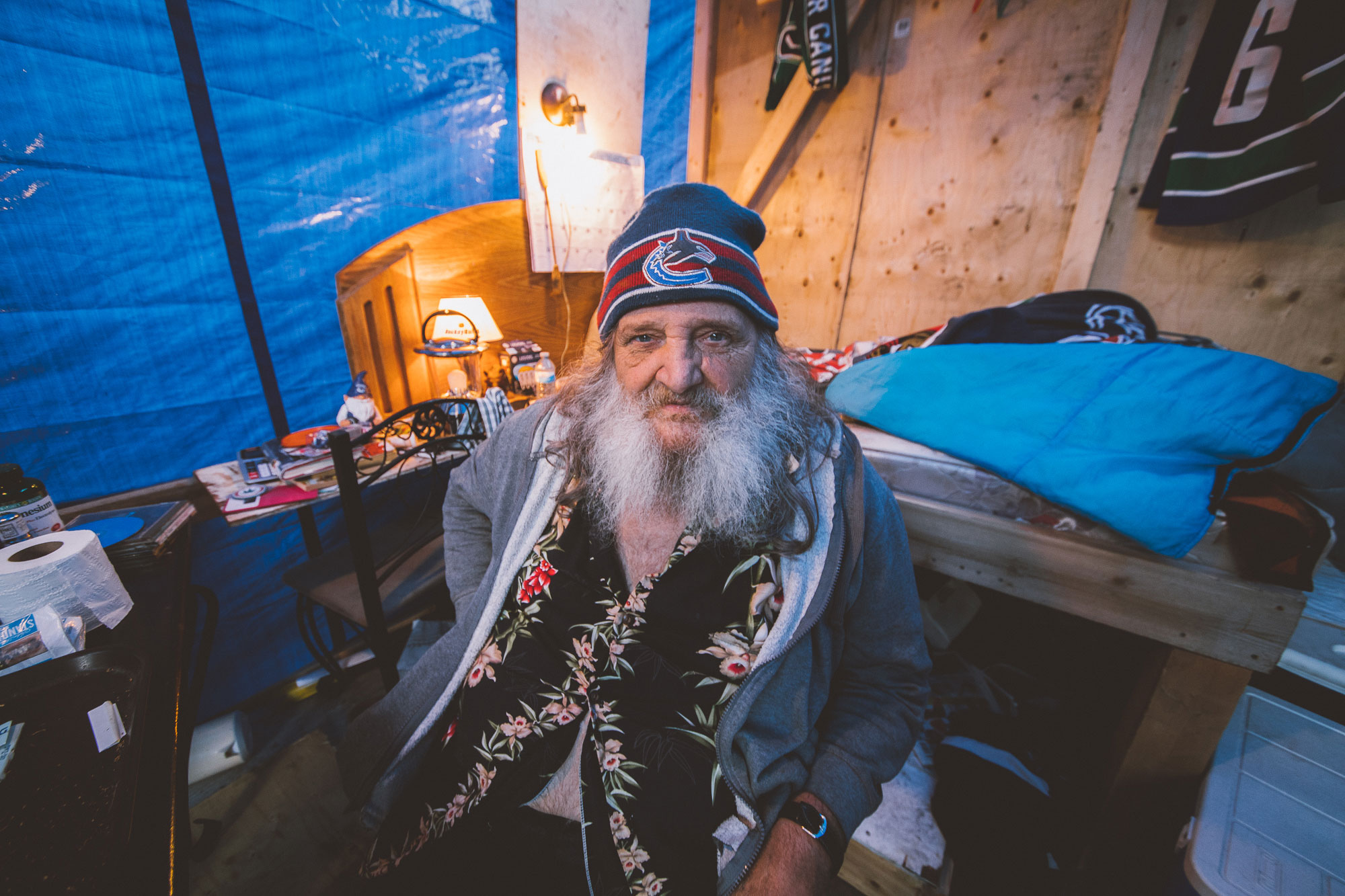
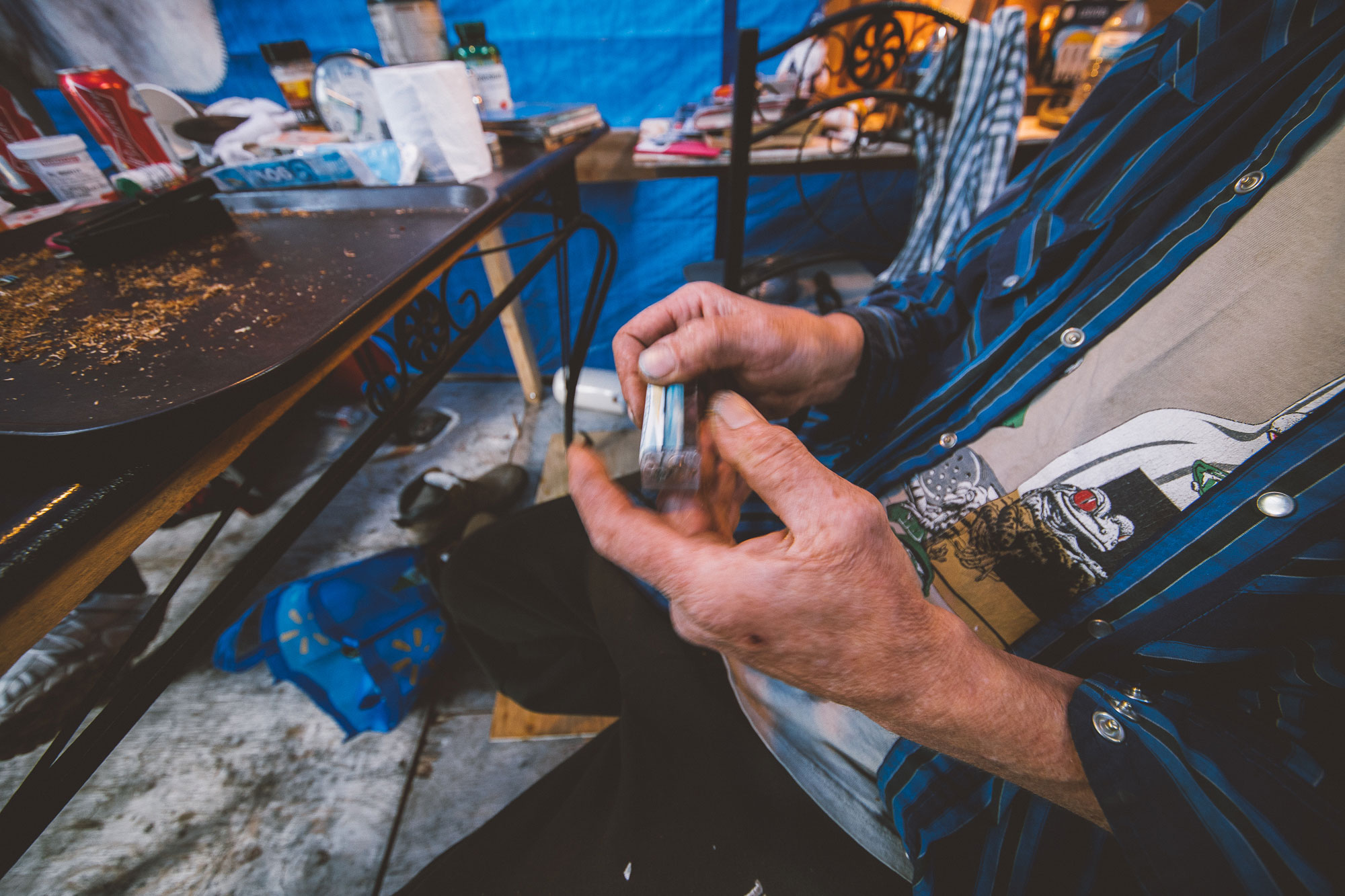
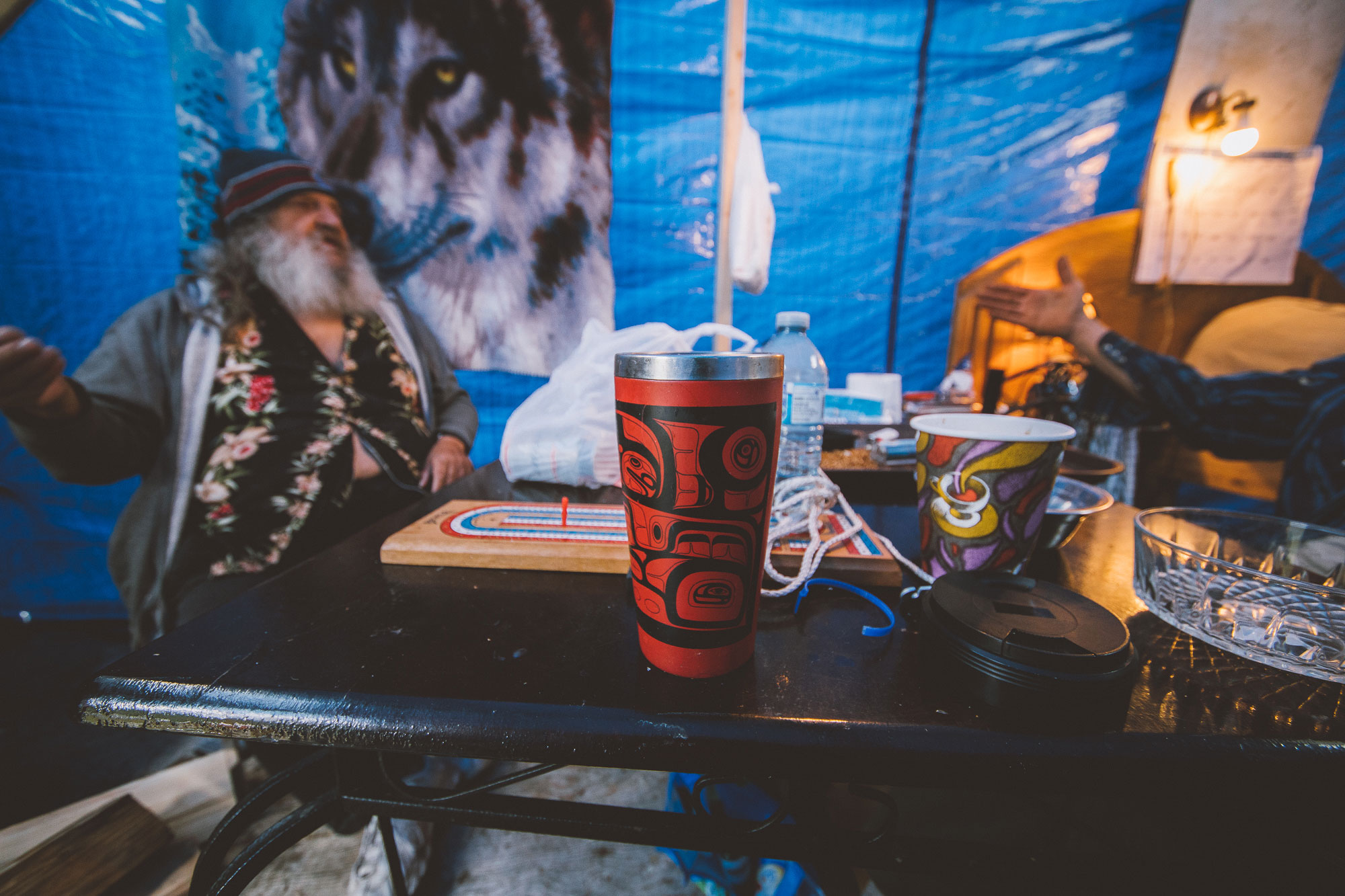
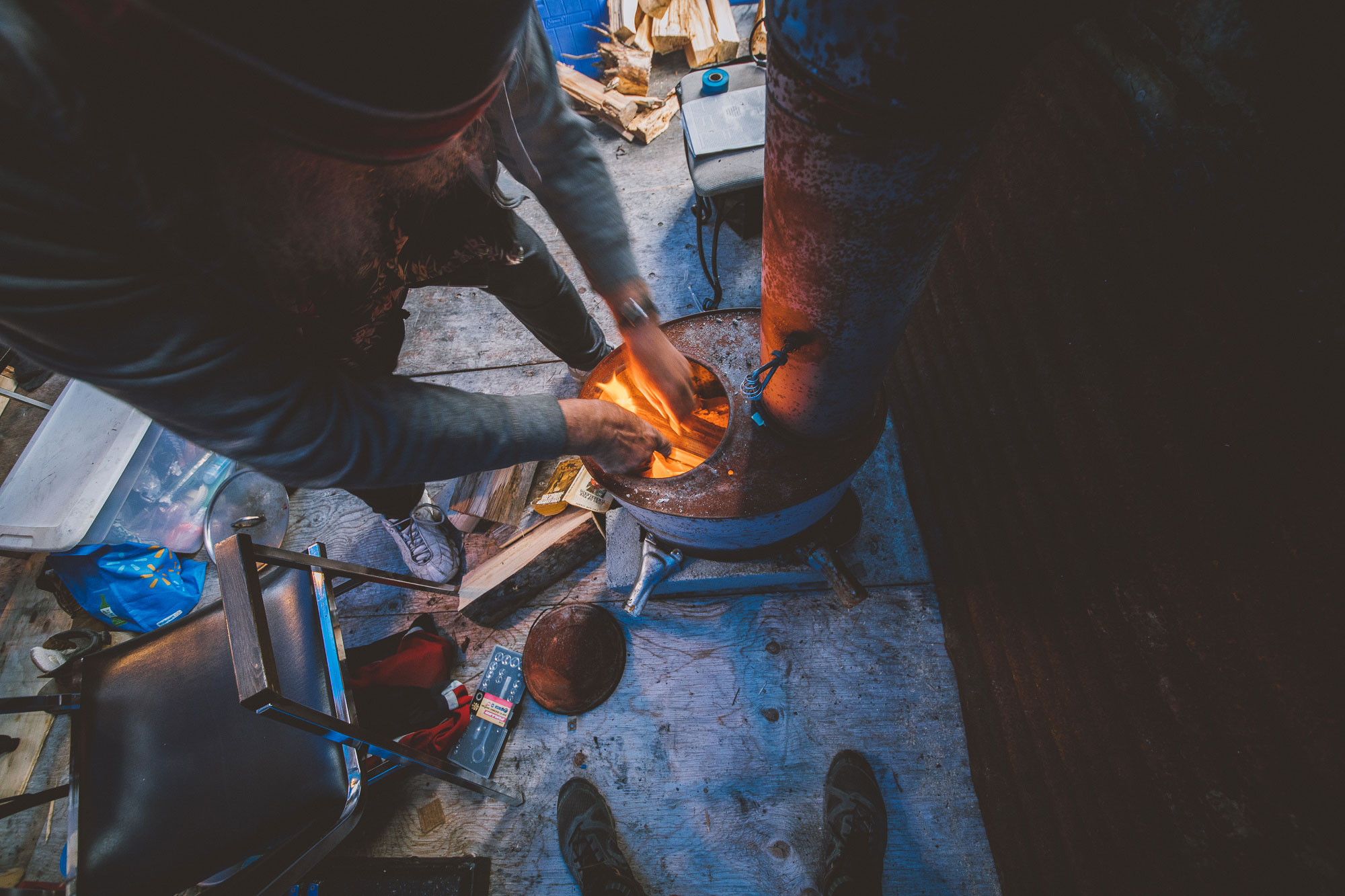
I know I’ve digressed from mushroom harvesting. In a lot of ways a pine mushroom is simpler than an idealist counterculture movement from a lifetime ago. In the end, I’m left with more questions than I had when I first pulled off the Stewart-Cassiar Highway and more than I had when I stepped into his shelter. What did he think of Haight-Ashbury? Did he go to Woodstock? Was being a wild-harvest buyer on the periphery of the food industry connected to rejecting the status quo of the 1960s as a young man? What was it about being turned away at the Spanish-Moroccan border that made him remember it almost fifty years later?
The point is not answering those questions. The point is acknowledging that sometimes you’ll go looking for something and you’ll find something else. Sometimes you’ll think you know what to make of a person and then you’ll find out they have a history that you never imagined.
For more information about the Summer of Love in Vancouver 1967, check out The ‘Easter Be-In’ That Occurred In Vancouver 50 Years Ago in Scout and What Happened Last Summer in the Vancouver Art in the Sixties archive.